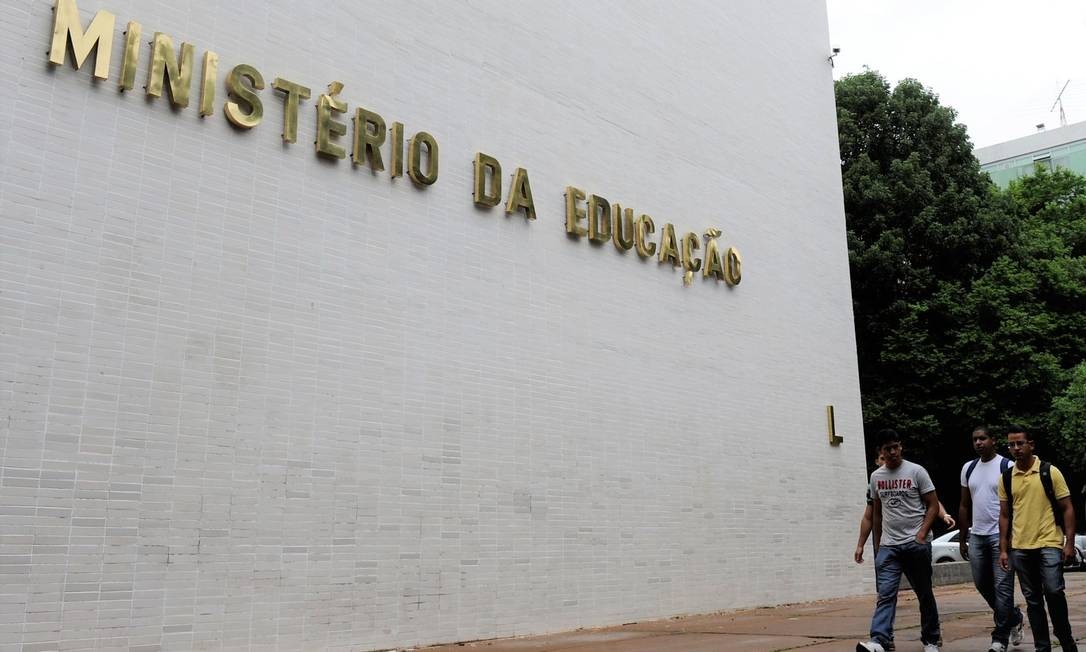RIO DE JANEIRO, BRAZIL – Unlike the governments of Lula and Dilma, which increased resources for education from R$18 billion (US$3.5 billion) to R$115.7 billion between 2002 and 2014, the equivalent of a 218 percent real increase, the government of Jair Bolsonaro is cutting more resources.
The Ministry of Economy announced a R$4.2 billion cut in the Ministry of Education’s budget in 2021, which represents 18.2 percent of this year’s budget. For universities alone, there will be a R$1 billion cut, which should hinder the accomplishment of teaching, research, and extension activities.
“This budget cut will mean a ten-year setback in relation to what was practiced in universities,” says João Carlos Salles, dean and professor of philosophy at the Federal University of Bahia (UFBA), who adds: “With this difference over our current and former responsibilities, when we had fewer students, less floor space, the cut, in fact, hinders teaching activities.”

According to the dean, the Bolsonaro government lacks strategic vision. Investing in education is crucial for the country’s independence, he says. On the one hand, there is training focused on professions that can provide “more immediate returns”. On the other hand, universities train people in key areas such as science, culture, and art, says the professor.
“Education contributes to a citizen’s education and to the improvement of society itself. Universities are facilities linked to the project of a more democratic, less unequal, more independent society, intellectually,” Salles said.
The dean laments that all of the government’s attacks on the sector have extended to the social media environment, in reference to the several posts by the ex-minister of education, Abraham Weintraub, on social networks like Twitter.
“The cut in resources is a continuation of the attacks that the universities have suffered. Last year and until the first semester this year, attacks were made on Twitter. They were attacks on leaders and the university life itself, on the areas of knowledge. Now, coldly, what was once threatened on Twitter, is being executed by an agenda, bureaucratically, failing to understand its strategic significance and failing to protect education,” lamented the dean.
According to Professor João Carlos Salles, the university budget was already outdated. Federal universities have grown in recent decades, with an increase in courses, inclusion of students, and, consequently, with more equipment and expansion of structures. But the budget has remained at the same nominal value with no compensation for inflation. Currently, the budget stands at some R$149 billion.
In only 13 years and with more investments, the PT (Workers’ Party) governments created 422 technical schools, 18 federal universities, 173 campuses, and financial programs such as ProUni and Fies, which democratized access to higher education. Between 2002 and 2014; as a result, access to higher education increased from 3.5 million to 7.1 million students.
With the investment cuts promoted by Bolsonaro and his economic team, led by Paulo Guedes, for next year, the education situation worsens because this is not a mere suspension of resources, as was threatened last year, when then Minister of Education Abraham Weintraub pressured federal university administrations, accusing them of allowing disturbances to take place on university campuses, such as the Fluminense Federal University (UFF), the University of Brazil (UnB) and the UFBA itself, the first three Weintraub targets, which soon spread to all universities, explains the dean.
The cuts
The government’s argument for reducing the MEC (Ministry of Education and Culture) funding is “an economic crisis resulting from the novel coronavirus pandemic.”
According to a note published by the Ministry, because of the crisis, “the Administration will have to deal with a reduction in the budget for 2021, which will require an additional effort in the optimization of public resources and the prioritization of spending.”
The cut, also according to the government, will occur in discretionary or non-compulsory expenses, managed by the universities themselves, to pay for structural costs such as water, electricity, cleaning, in addition to scholarships for student aid and student assistance.
For dean João Carlos Salles, by using the pandemic as an excuse, the government eventually deals with all areas as public administration.
“Universities become another public office because a strategic priority for education and health is not perceived at this time,” Salles said.
For the UFBA dean, addressing health and education as strategic issues is a response to society’s desire for accessible and quality hospitals, schools, and universities. “It is based on society’s bet on its future, so by dealing indistinctly and bureaucratically with public administration, the government does not detach this priority, it only considers as a fatality what is, in fact, a choice.”
More, not less
The National Association of Directors of Federal Institutions of Higher Education (ANDIFES), argued in a note sent to MEC that the 28.2 percent budget cut for next year will prevent institutions from fulfilling their teaching, research and extension purposes next year.
The note also points out that MEC disregards the increased demands triggered by the novel coronavirus pandemic, which require even more resources for a return to school, rather than cuts, as the government wishes.
Source: CUT

